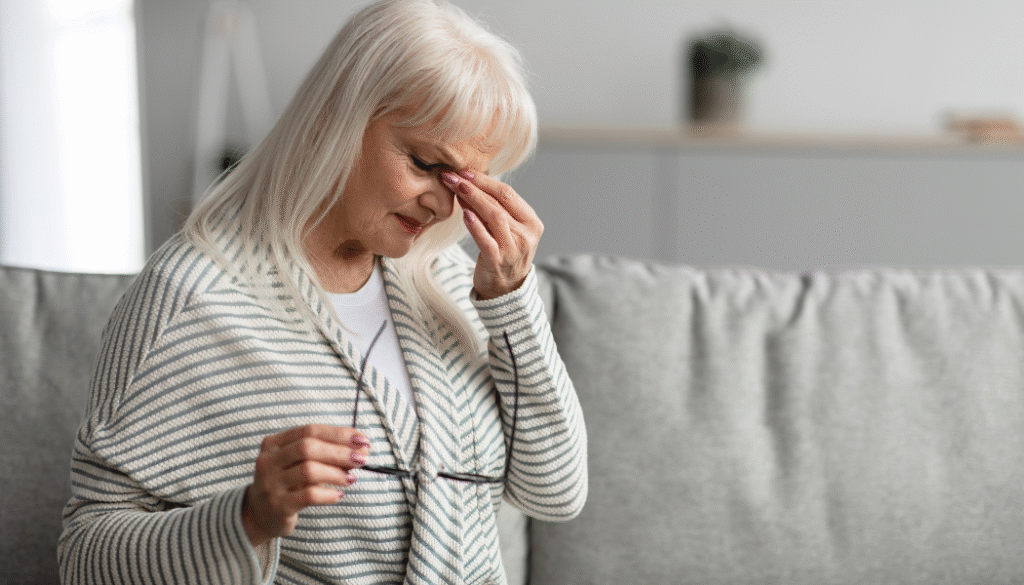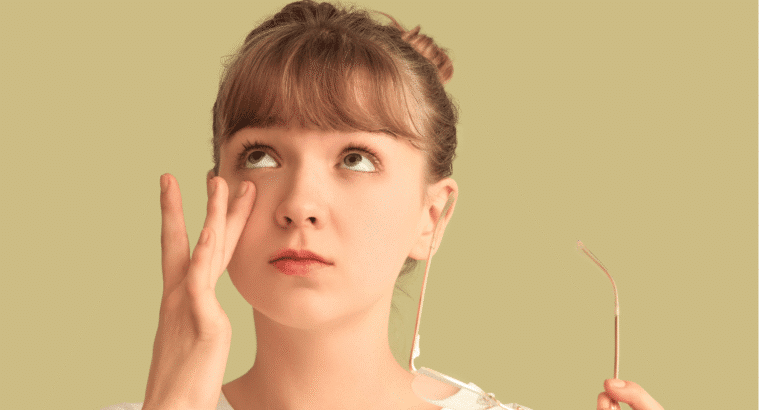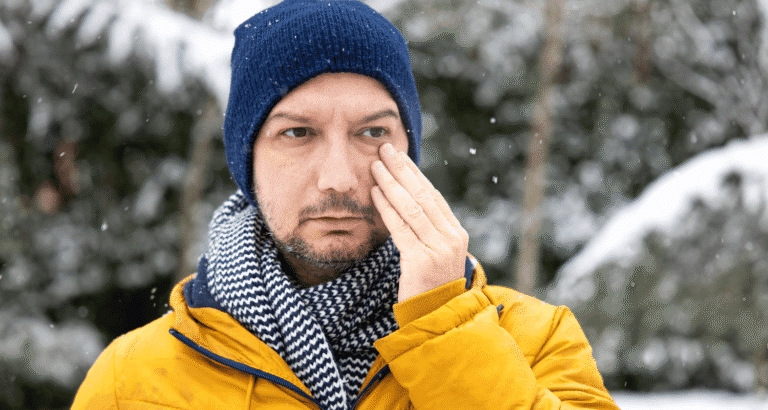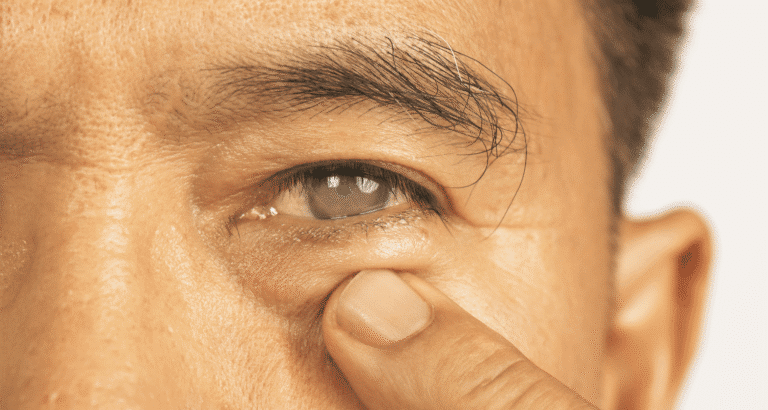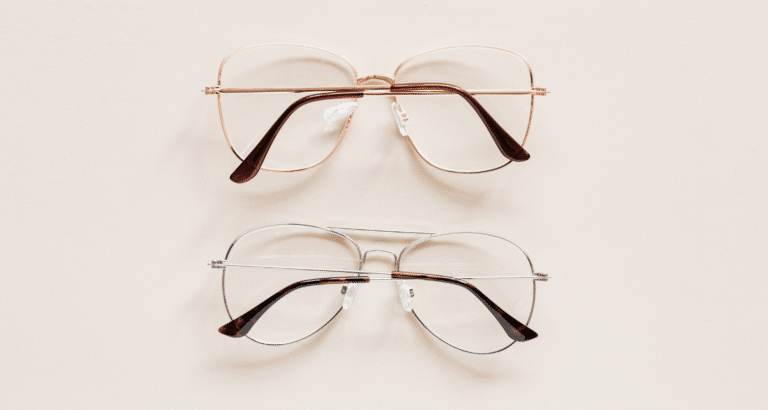Cold air and sharp winds can make your eyes feel dry, irritated, and tired. Add indoor heating that strips away moisture, and it’s no surprise many people suffer from seasonal eye discomfort in the winter months. While it may not be possible to escape the weather, you can take steps to protect your eyes and find lasting relief.
What Is Dry Eye Syndrome?
Dry eye syndrome happens when your eyes don’t produce enough tears or when tears are of poor quality. This leads to burning, stinging, redness, and blurred vision. The tear film, which keeps the eye’s surface smooth and moist, becomes unstable. Left untreated, severe cases can damage the cornea and even cause vision loss. That’s why winter tear film problems should never be ignored.
Why Winter Makes Dry Eye Worse
Cold winds, low humidity, and heated rooms are common dry eye seasonal triggers. When the air is dry, moisture evaporates from your eyes more quickly, causing irritation. People who already have dry eye may notice symptoms get worse in the winter, while others experience it for the first time.
Other causes can add to the problem, including aging, some medications, refractive surgery, or long hours staring at screens. Blinking less during screen use means tears don’t spread evenly, leaving eyes unprotected. Smoky environments can also worsen symptoms.
Winter Eye Protection Tips
The good news is there are many dry eye winter remedies you can try to keep your vision clear and comfortable.
- Use artificial tears or eye drops. Over-the-counter drops add moisture and bring quick relief. Prescription options may be needed for more severe cases.
- Run a humidifier. Adding moisture to indoor air reduces dryness caused by heating systems.
- Apply warm compresses. This helps open oil glands along the eyelids, improving tear quality.
- Wear protective eyewear outdoors. Wraparound glasses shield eyes from cold winds and prevent moisture loss.
- Take screen breaks. Following the 20-20-20 rule (every 20 minutes, look 20 feet away for 20 seconds) can help reduce strain.
- Eat omega-3 rich foods. Salmon, flaxseeds, and walnuts may support tear production and reduce inflammation.
- Avoid smoke. Both active smoking and secondhand smoke can increase dryness and irritation.
These small changes can provide noticeable seasonal dry eye relief throughout the colder months.
Professional Care for Dry Eye
Sometimes home care isn’t enough. If symptoms persist, your doctor may suggest in-office treatments, prescription drops, or tear duct plugs to improve lubrication. At Barnes Talero EyeCare, we create personalized plans to help manage low humidity eye issues and prevent damage.
FAQs
How do I keep my eyes from drying out in the winter?
Use artificial tears, humidifiers, warm compresses, and protective eyewear to maintain moisture.
What vitamin am I lacking if I have dry eyes?
Low levels of Vitamin A or omega-3 fatty acids can contribute to dry eye symptoms.
Is winter or summer worse for dry eyes?
Winter is often harder on the eyes due to cold winds and heated indoor spaces.
What is the fastest way to cure dry eyes?
Lubricating drops give the quickest relief, but long-term care may require lifestyle changes and medical treatment.
Final Thoughts
Cold weather eye care is about more than comfort—it’s about protecting vision for the long term. With the right winter eye protection tips and guidance from your doctor, you can enjoy the season without constant irritation. If you’re struggling, visit Barnes Talero EyeCare in Nashville for a full evaluation and tailored treatment plan.

